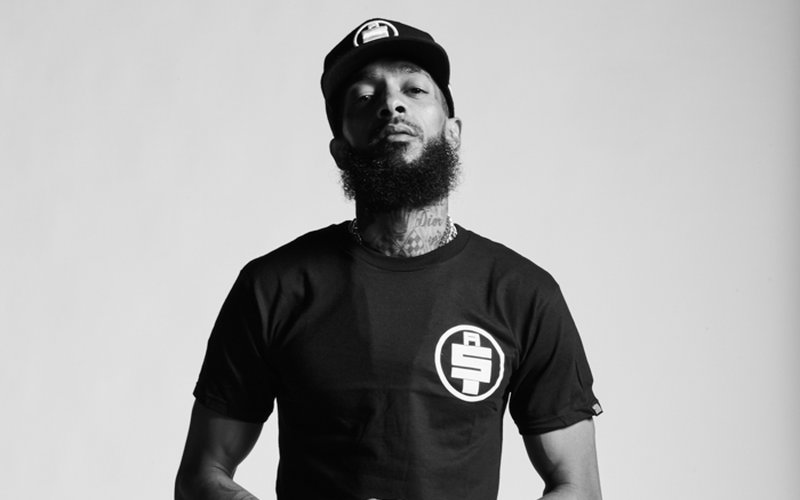
Nipsey Hussle was killed last Sunday at the age of 33. He was shot six times outside a business he opened in L.A. He was a community leader, entrepreneur, artist, father and prominent figure in the West Coast rap scene.
He dropped numerous albums and mixtapes for more than ten years. He collaborated with Kendrick Lamar, Snoop Dogg, Drake, Diddy, and many more prominent rappers and hip hop stars. Then last year, he released his debut studio album, called Victory Lap. It was nominated for Best Rap Album in this year’s Grammy Awards.
Larry Mizell Jr is a writer and former KEXP DJ for Street Sounds. He says Nipsey Hussle had been working on that album for years.
“It’s one of the most tragic things to think about when it comes to Nipsey is the fact that even though he’d been at it for so long, and connected so deeply to so many people, he was just getting started,” Mizell says.
Mizell says Nipsey Hussle invested a lot into his LA community. He helped pay for new playgrounds and basketball courts at local schools in the area, and he bought numerous businesses in his hometown neighborhood.
Before his death, Nipsey Hussle was in the early stages of creating a documentary film about a controversial Honduran herbalist, biologist, & healer who’s claimed to have cures for AIDS, cancer, & various other diseases.
Mizell says Nipsey Hussle not only invested financially in his community, but he also built bridges.
“He was a bridge builder out of the gate because he was a crip rapper being shouted out by the most visible LA rapper of the time, The Game, who was a blood,” Mizell says. “So he came out being allied with so-called ‘the other side.’ That persisted even with his work with an artist like YG, who is also a blood.”
“When [Nipsey and YG] came together, I always think of the song – in fact, I played the hell out of this song on Street Sounds – the song “Fuck Donald Trump” (or “FDT”) where they are both criticizing the president,” Mizell adds. “Nipsey’s verse on that song was all about him taking umbrage and speaking to honor of the Mexican American folks in Los Angeles, the Latino community, and the brown folks that Trump and his supporters had heaped so much hatred and pain upon.”
“That’s a big deal if you get LA street politics. Black and brown haven’t always been on the same page. Him representing a bridge to that in a high profile, political manner like that, to me, spoke volumes,” Mizell says.
Mizell says he felt numb when he got the news of Nipsey Hussle’s death. Now he’s seeing and getting messages from his younger friends as they process the loss.
“Reading their words, hearing their words about how they felt about it, it reminded me of 1996, 1997 when Pac got killer and Biggie got killed,” Mizell says. “I don’t think people understand the kind of cultural trauma that comes with such beloved figures getting murdered, especially in the cases of Pac and Biggie when the police seemed to forget about it, they never found these people. Imagine the two leading stars of country [music] getting murdered within a year and there being nothing happening. Picture that.”
Mizell continues, “Nip getting killed has shaken up a whole generation. I think a lot of young people who didn’t experience that happening 20 years ago, it’s that’s kind of moment for them. It’s a huge trauma. But within it, I think there’s a lot of inspiration because Nipsey was all about that.”
Mizell says Nipsey Hussle was an inspiration.
“He was fully about inspiring people to want more and to see beyond outside the box and to see beyond the things that people were supposed to want that were a part of the rap game or a part of the streets,” Mizell says. “He represented the kind of moral codes that have existed in street life for generations that have gone by the wayside. He was always a bit of a young OG in his energy. To lose that is humungous.”
KEXP speaks with Alex Grigg of the Music BC Industry Association about the differences between Canada and the US’s music industry.
Welcome to BabexHouse, a new music and artist collective in Seattle made up of POC/LGBTQ (People Of Color/Lesbian, Gay, Bi, Trans, Queer) DJs and artists who are dedicated to creating safer spaces in dance music.